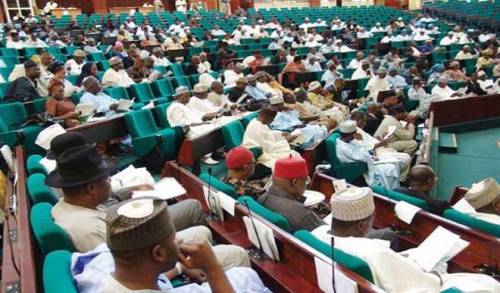News
P&ID $9.6 Billion Scandal: Nigeria Parliament Summons Attorney-General Malami, Minister Of State For Petroleum Resources, Sylva

The House of Representatives says it will investigate the
circumstances that led to the $9.6 billion judgment recently secured
by Process and Industrial Developments Limited in a United Kingdom
court against Nigeria.
The house also resolved to invite the Attorney-General of the
Federation, Abubakar Malami and the Minister of State for Petroleum,
Timipre Sylva, for interrogation.
This was sequel to the adoption of a motion by Julius Ihonvbere, at
yesterday’s plenary, titled, ‘Motion for the Urgent Need to
Investigate the Act of Negligence in the Handling of the Process and
Industrial Development Limited’s Transaction by the Ministry of
Justice and Ministry of Petroleum Resources, Respectively’.
He urged the House to set up an ad hoc committee “to as a matter of
urgency, invite the ministers of both ministries as well as other
officials of the ministries saddled with the responsibility to
negotiate the agreement with P&ID and the prosecution of the matter
before the tribunal, to give situational report on the matter and
explain the lapse in judgment of time and due diligence in the
(miss)handling of the case, with a view to finding lasting solutions
to the avalanche of extant and future cases”.
The 17-man panel, set up by Speaker Femi Gbajabiamila, was mandated to
recommend appropriate sanctions where necessary “without fear or
favour or preference for status” in line with Order 14 of the Standing
Orders of the House. Ihovbere said for a country with a foreign
reserve of only $45bn and a sovereign debt profile of over $80bn, the
debt was punitive and would devastatingly affect Nigeria’s economy.
He stated: “The House is aware of the fact that Nigeria has a penchant
for disregarding the sanctity of contracts and terms of the agreement,
coupled with the failure of Nigeria’s representatives in many cases to
carefully or diligently scrutinize agreements they sign, knowing that
the consequences will affect past and future generations.
“The House is alarmed that the agreement was somewhat shrouded in
secrecy and, as such, apparently dubiously procured as those who ought
to know about its existence did not. And more important, the relevant
laws in Nigeria for the transaction to be consummated were not
applied, especially Part IV of the Bureau of Public Procurement Act
2007 which deals with the fundamental principles of procurement.”
-
Society News3 years ago
Jamaican man beheads wife after finding out their 6 kids are not his
-
Society News5 years ago
EXCLUSIVE: The Complete Story of Dolapo Awosika, John Fashanu and Prophet Kasali Sex Mess
-
News2 years ago
Breaking: Ex-Police IG, Tafa Balogun Dies
-
News4 years ago
Pastor Osagie Ize-Iyamu, His Membership Of Secret Cult, And Other Issues Touching On His Public Credentials Examined by Barr. PATRICK I. BIOSE
-
News4 years ago
BREAKING: Ajimobi’s daughter-in-law blast Gov. Makinde, says gov can’t surpass ex-Oyo gov
-
News4 years ago
BREAKING: 2 arrested as NAF begins investigations into Tolulope’s death
-
News4 years ago
BREAKING: Police take over Edo House of Assembly as APC, Oshiomhole move to seize control
-
Crime4 years ago
Exclusive: Female Aide Fingered In Oko Oloyun’s Murder + Banking Transactions That Nailed Husband
Notice: Undefined variable: user_ID in /var/www/first2023/wp-content/themes/firstweekly/comments.php on line 48
You must be logged in to post a comment Login